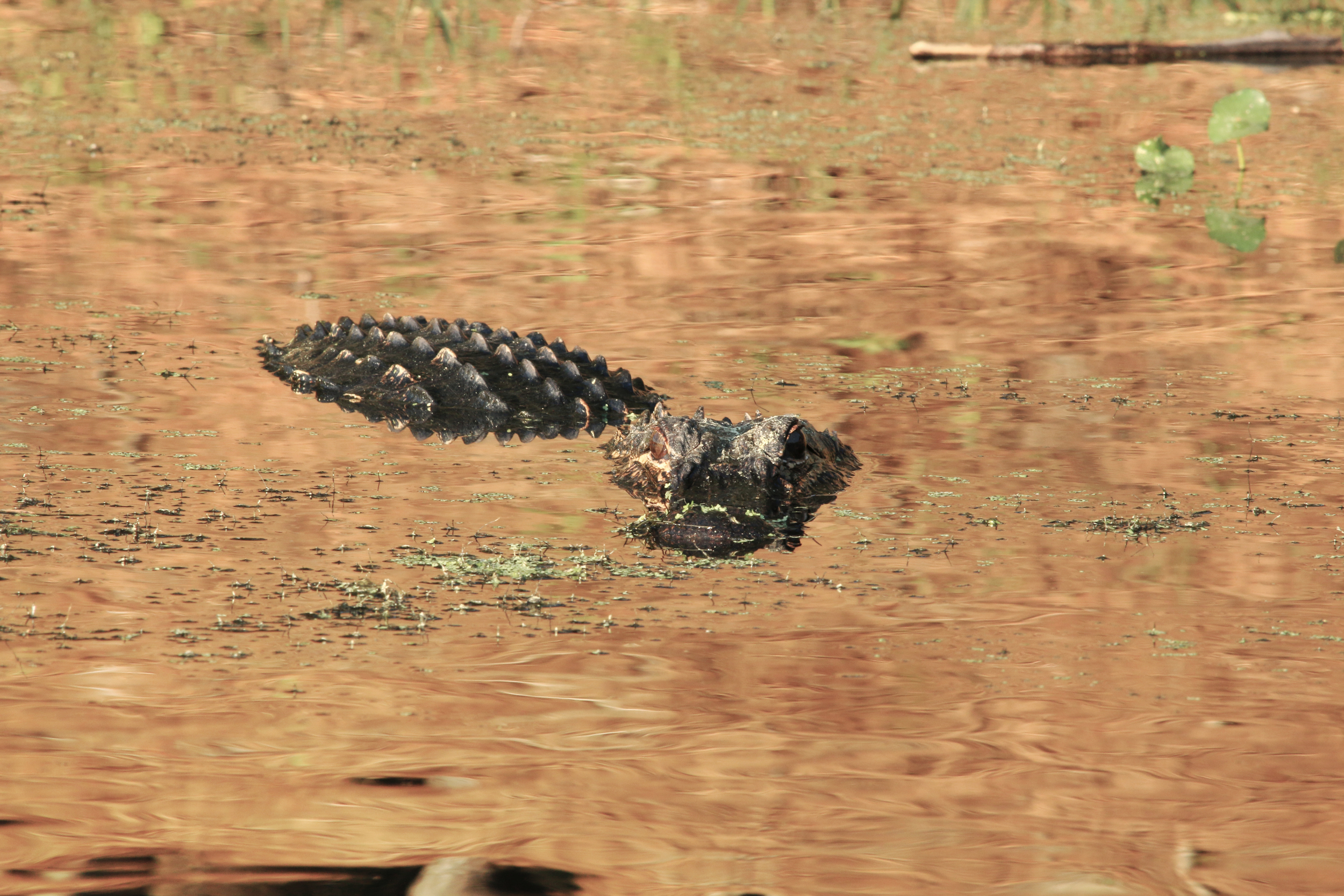
Alligators in Hilton Head Island, SC: What You Need to Know
Hilton Head Island, SC, is a picturesque coastal destination known for its diverse wildlife. Among the many animals that call this island home, American alligators are perhaps the most fascinating and misunderstood. If you're planning a visit to Hilton Head, encountering these ancient reptiles is a real possibility. Here's what you need to know about alligators in Hilton Head Island, SC, to stay safe and make the most of your experience.
Alligator Habitat in Hilton Head Island
Alligators are native to the southeastern United States, and Hilton Head Island offers a perfect environment for them. The island's numerous freshwater lagoons, ponds, and marshes provide ideal habitats for these freshwater reptiles.
You might spot them basking in the sun on the banks of a lagoon, gliding through the water, or even crossing a golf course. These creatures have been living on the island long before it became a popular tourist destination. They play a crucial role in the local ecosystem.
How to Safely Observe Alligators
Seeing an alligator in the wild can be a thrilling experience, but it’s essential to keep safety in mind. Here are some important tips for observing alligators in Hilton Head Island, SC:
Maintain a Safe Distance: Alligators may seem slow and sluggish, but they can move quickly when provoked. Always stay at least 60 feet away from them, and never attempt to approach or feed them. Feeding alligators is not only illegal but also dangerous. It causes them to lose their natural fear of humans.
Alligator & Wildlife Tour
H20 Sports
1-hour guided tour of the freshwater lakes of The Sea Pines Resort Forest Preserve which spans over 600 acres. Get close to Hilton Head's indigenous plant and animal life including the Native American alligator.
Do Not Swim in Freshwater: While Hilton Head's beaches are safe for swimming, avoid swimming in freshwater lagoons or ponds. Alligators are most active at dawn and dusk, so it’s wise to avoid these areas during those times.
Keep Pets on a Leash: If you're walking your dog near water, keep them on a leash and away from the water's edge. Alligators can see pets as prey, so it’s vital to stay vigilant, especially near lagoons and marshy areas.
Be careful when fishing in Hilton Head's lagoons and ponds, as alligators might be drawn to the fish you catch. Stay safe while enjoying your time. Avoid fishing close to the water’s edge and always dispose of fish scraps in designated trash areas to avoid luring alligators.
Report Unusual Behavior: If you notice an alligator acting aggressively or appearing in areas where they shouldn’t be, report it to local authorities. The South Carolina Department of Natural Resources (SCDNR) has protocols in place to manage nuisance alligators.
Where to Spot Alligators in Hilton Head Island, SC
If you're interested in seeing alligators in their natural habitat, Hilton Head Island offers several spots where you're likely to encounter them. Some popular locations include:
Sea Pines Forest Preserve: This 605-acre nature preserve is a haven for wildlife, including alligators. The preserve’s lakes and wetlands are prime spots for observing alligators, especially from a safe distance on one of the many walking trails.
Pinckney Island National Wildlife Refuge: Just off Hilton Head Island, this refuge is a great place to see alligators in a more natural setting. The refuge is home to numerous wetlands where alligators thrive, and the walking trails offer excellent opportunities for wildlife viewing.
Local Golf Courses: Hilton Head is famous for its golf courses, and it’s not uncommon to see an alligator sunning itself near a water hazard. While it may be tempting to get a closer look, always remember to keep a safe distance.
Alligators are ancient creatures, having been around for over 200 million years, surviving through the age of the dinosaurs. Here are a few more fascinating facts about alligators in Hilton Head Island, SC:
Cold-Blooded Survival: Alligators are cold-blooded, which means they rely on external heat sources to regulate their body temperature. This is why you’ll often see them basking in the sun.
Remarkable Hunters: Alligators have powerful jaws capable of exerting over 2,000 pounds of pressure per square inch. However, they prefer to ambush their prey rather than chase it down.
Long Lifespan: In the wild, alligators can live up to 35-50 years, but in captivity, they can live even longer, sometimes reaching 65-80 years.
Ecosystem Engineers: Alligators play a critical role in their environment. They create “alligator holes” which can hold water during dry periods, providing an essential resource for other wildlife.
Fascinating Facts About Alligators
Hilton Head Island, SC, is more than just a beautiful vacation spot. It is a vibrant ecosystem where alligators play a vital role. Whether you’re a nature enthusiast or simply curious, encountering alligators can be a memorable experience.
By respecting these powerful creatures and following safety guidelines, you can safely enjoy the natural beauty and wildlife that make Hilton Head such a unique destination.






